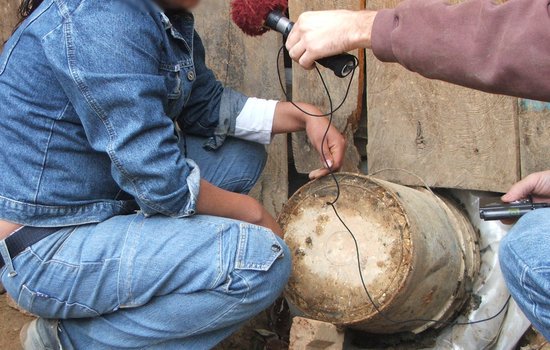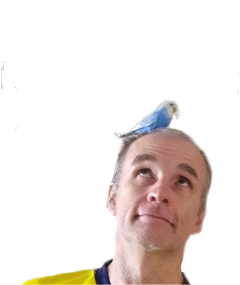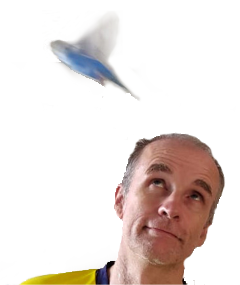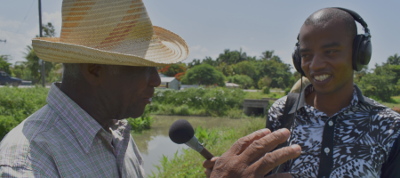
Hot water for mother
Aug. 17, 2022
How do you tell the story of pig poop in a plastic bag? Biodigesters -- giant tanks or bladders in which farm animal waste ferments to combustible gas -- are an efficient, cheap and environmentally friendly source of energy, but they don’t necessarily make great storytelling. I mean, where’s your arc? The passage of poop from sugars to fatty acids to methane gas? This was the problem I faced when I went to report on a biodigester project in Veracruz, Mexico. One look at the long bags squatting in their muddy trenches, bloated with gas, and I could see this was going to be an unappealing assignment.
My contact was Citlali (not her real name). She lived with her sister, her arthritic mother and a sty full of pigs on a small plot of land on the outside of town. They lacked many things, among them a reliable source of energy, since the price of scarce firewood was rising. These were all typical conditions for poor families in the region. But Citlali was different. To begin with, she had named her pigs (“that one’s called Latin Lover”, she giggled, pointing to the loudest). And while her school friends spent their money on clothes for the upcoming prom, she had put all her money into building a biodigestor. When her friends were at parties, she was digging trenches, assembling the plastic bags and running gas pipes to a stove in her family’s one room house. “I don’t care about the prom”, she told me. “I just want my mother to have hot water for washing in the mornings.”
I spent the day with Citlali, helping her feed the pigs and even shovelling some of their excrement into the swollen biodigester. It had been fermenting for several weeks now, and my visit was to be the inaugural test. I stood by expectantly as she put a match to the stove. For Citlali, a flame would be the culmination of weeks of work. For me, it would be the one spark of excitement in an otherwise workaday story. But try as she might, she could not get it to light. We listened for gas. We tried tightening the connections. We walked back along the pipe to the biodigester itself looking for leaks. Citlali grew increasingly frustrated. “Maybe I just need to put more fuel in.” She took a shovel and walked behind the house to the biodigester. I joined her, crouching at the opening to the plastic bag with my microphone, still questioning her about technical issues. But there was no answer. I looked closer and realized she was in tears. Finally her words came through sobs. She had spent all her money. She had faced the scorn of her neighbours and even her uncles. “This will never work,” they had said. “This isn’t what girls do,” they taunted. She had missed the prom. And her ailing mother still had no hot water.
It was then that I realized what you have probably known all along: the story was not only about poop or gas, it was about Citlali herself. It was a powerful story, of independence, of courage, and the daily struggle of families with no reliable source of energy. I had to tell the technical story, of course, but it was bound up with the human story. To tell one was to tell the other, a point hammered home by that image -- I still have it burnt into my mind -- of a young woman’s tearful face beside a fetid bag of pig waste. But although it was a “great story”, journalistically speaking, I wasn’t sure I could tell it. There was something just too pathetic about the image. What would be gained by exposing this raw emotion to the world, this fragile condition, without having anything to show for it in the end? It felt like only half a story.
A few weeks later, I got the other half. Citlali sent me an email. It must have cost her considerable time and expense just to get to an internet cafe. “Mr. Fox, I finally got the biodigester to work! My mother has hot water.” I could now publish the story. I was overjoyed that things worked out for Citlali, and proud to publish a happy story when so much news is tragedy. But ultimately, I had been sent to do a story was about biodigesters. With that flame, there was now a biodigester to tell a story about.



